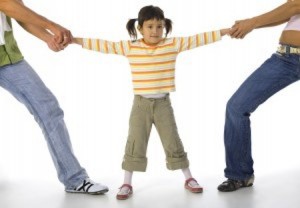
Since kids are learning new things about independence at each stage of their development, they may balk at the idea of putting life at one home on hold to visit another. The good news? You can help them adjust throughout the whole process.
Having a Heart-to-Heart
Before you even work out a custody agreement with your ex, you should both talk to your kids about the changes that are about to take place. If your kids are old enough, you can take their wishes into consideration as you work out an agreement with your ex. Although North Carolina courts don’t exactly let kids decide where they will live after a divorce, their best interests are the determining factor.
The Mom-Dad Shuffle
Since most kids need time to adjust to any major changes in their lives, make sure you’re available to talk about the challenges they’re facing. They might feel rushed on weekdays when they have to pack up and go to your ex’s right after school, or they might dread ending the weekend because it means going back to the house without the other parent.
What your Raleigh Divorce Lawyer Might Recommend
If your kids are having a particularly rough time adjusting, or if they’re just not happy with the custody arrangement you and your ex have worked out, talk to your Raleigh divorce lawyer about changing it. If you can demonstrate that your previous agreement is not serving your kids’ best interests, your lawyer might be able to work out an entirely new agreement. Remember, a new agreement may necessitate changing the amount of child support you pay or receive; additionally, changing daily visitation schedules can impact your holiday and summertime visitation schedules.
Your Raleigh divorce lawyer might also suggest that you take your kids to see a counselor or therapist with experience working through kids’ emotional issues. He or she may even be able to refer you to someone with a great reputation. This can provide your kids with the opportunity to process their emotions and help them understand what’s going on, so even if your lawyer doesn’t suggest it, it might be a good idea.




